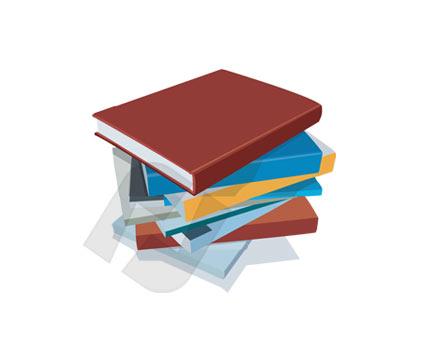Bits of destructions and the distribution of economic rents
 There's a great two-part series on ReadWriteWeb on the economics behind the book business.
There's a great two-part series on ReadWriteWeb on the economics behind the book business.The author goes over both the current economics and how some future business models might evolve. Its a good read.
Most interesting to me was the following information on the distribution of revenue on a book sale (gleaned from this site.)
Some caveats on the analysis done. The first piece seems to have been done on the distribution of costs, but assuming that carries over to the distribution of revenues and profits there's some interesting numbers here:
The current distribution on books:
- Author: 10% (This in fact ranges between 8% and 15%, depending on the author's clout -- e.g. Stephen King does better than most. If the author has an agent, the agent's cut comes out of this. It is indeed tough for new authors.)
- Publisher: 30% (This ranges between 25% and 32%, again depending on the author's clout -- e.g. their percentage is less with Stephen King because the risk is lower too. Note: this is their net revenue, after deducting author royalties and printer fees.)
- Printer: 10%
- Distributor: 10%
- Retailer: 40%
This explains why retailers are able to offer such steep discounts on books to drive volume and still smile all the way to the bank.
Here's the doozy. Here's what Amazon is proposing/going to market with for the distribution of revenues from
- Author: 8%
- Publisher: 33%
- Printer: 0%
- Distributor: 0%
- Retailer: 0%
- Amazon: 59%
In Part 2 of the article, the author of the post suggests alternative way to split the pie (equally in 3 ways) which I
 think is interesting.
think is interesting.I have a bias here though, and I think the market will evolve differently... and will need to evolve differently. I think this applies not just to books, but all sorts of content (irrespective of whether the content is distributed online or offline.) That's why I was really pleased that this is that way the pie is currently distributed, and why there's room for this to change.
Here's why and how:
- I think for all types of content as users gets used to more choice and content producers have more access to distribution channels you'll have fewer blockbusters (i.e. big hits that everyone watches) and more things that just a lot of people like.
- Which means that to keep producing this content, the content producers (i.e. authors, filmmakers, writers, journalists etc.) need to make more money per customer. Clearly there's a lot of room for readers/watchers etc. to keep paying the same prices they are today (or lesser!) and still have the author make the same amount of money (i.e. if I started receiving 50% of the profits of a book I worked on instead of 5%, I'd make the same amount of money even if 10x fewer people read the book.)
- This addresses a huge concern that a lot of people had. Many believe that as the market and user attention gets more fragmented, content quality would drop. i.e. the content creators would make less money and hence find it harder to sustain creating this content (or at the very least have fewer incentives to do so.) But clearly if they just got a larger %age of the pie: problem solved.
- And this is possible! Clearly, its going to mean changes for everyone else in the business (particularly retailers and publishers), but its change that they'll need to adapt to. They're being forced to tackle this head-on right now anyway as users consume more content online.
- What I hope will happen is the distributors/publishers that win, are the ones that give most back to the content creators and focus on efficiencies and on scale.
What does this mean? My theory:
- More people authoring books, making videos and movies, and writing articles....and earning a living from it.
- Fewer distributors and publishers: the ones that win will be the ones that give most back to creator and
- Finally: a bigger pie, more people creating a variety of content -> greater variety -> more people consuming it.
What do you think?
Comments